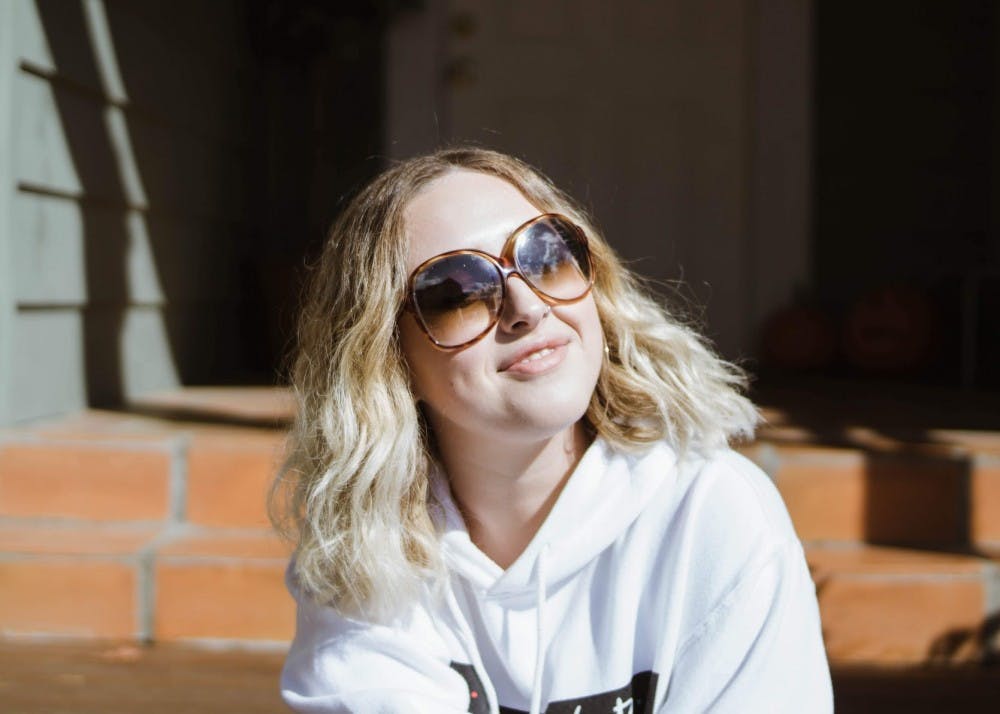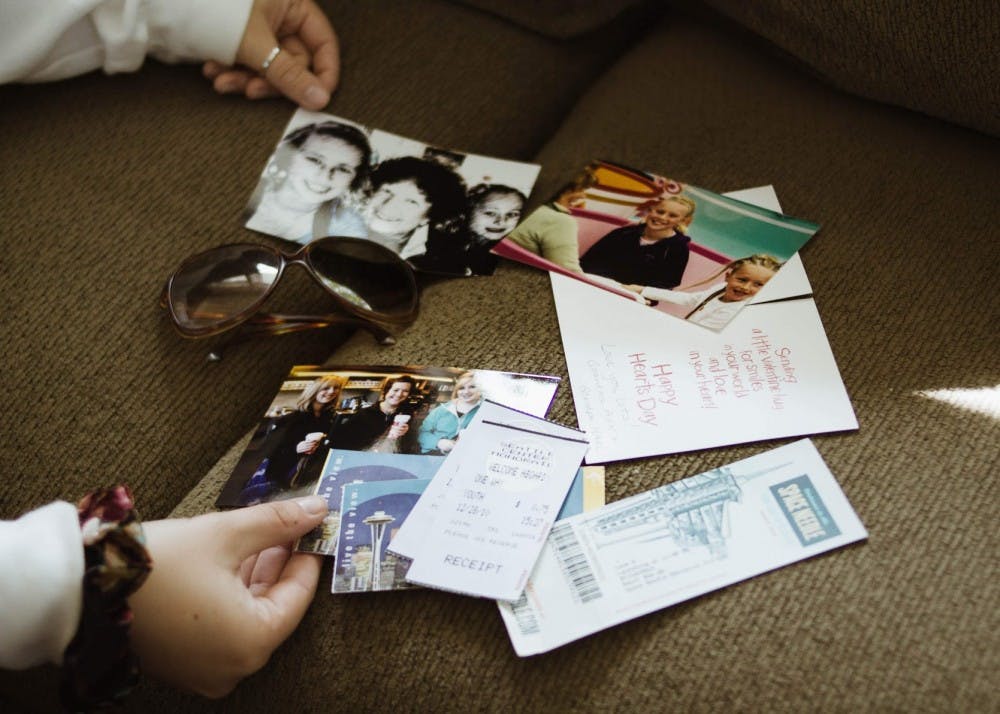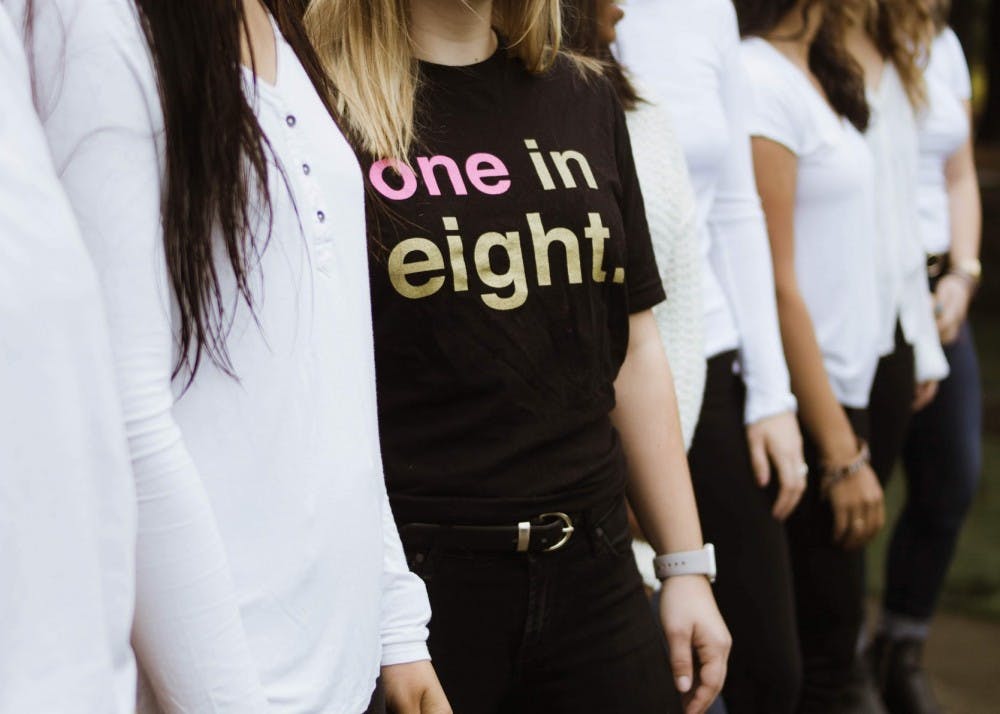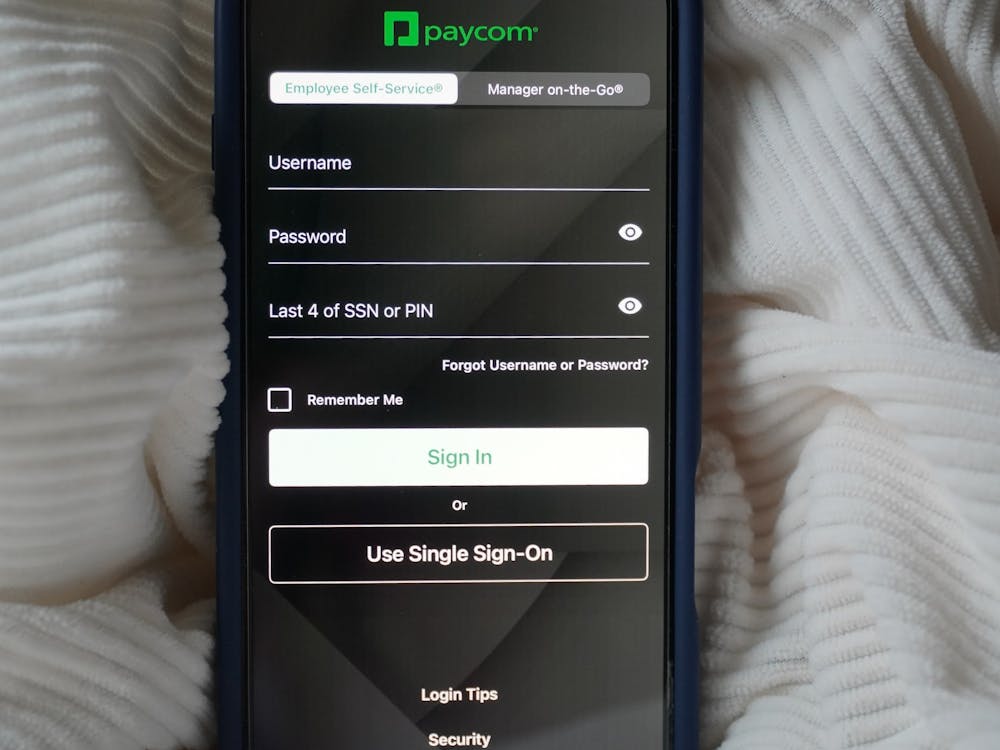Every other week for 12 weeks, my mom drove 155 miles from our home to Seattle where doctors injected chemicals to kill the disease growing inside of her: cancer. Then, for another eights weeks, she went for her second round of treatments. This time, it was weekly. She shaved her head before her hair could fall out and came home tired, but still battling.
Next came radiation, intended to blast away the multiplying cancer cells. This was every day for six weeks.
Mixed in with the various chemotherapy treatments were the numerous surgeries to cut the cancer out.
All of this because she was diagnosed with breast cancer for the second time in her life.
According to the National Breast Cancer Foundation, Inc., every year, one in eight women will be diagnosed with breast cancer. Cancer affects not only the person diagnosed, but also an entire family or network of individuals. In observance of breast cancer awareness month, The Beacon is sharing stories of some UP students — including myself — who have been affected by breast cancer.
For me, almost exactly four years apart, I heard those those gut-piercing and heart-pulling words. For the first time my sophomore year of high school I heard them. And then again, my sophomore year of college.
We sat in my kitchen for the second time. It was the summer going into my sophomore year of college, my two sisters and I heard those words again.
“I’m sorry to ruin the summer fun, but the doctors found a lump in mom’s breast,” my dad said. “It’s breast cancer again.”
The cancer had come back stronger this time.
But within the year, my mom — one of the strongest women I know — would have defeated breast cancer. She never once stopped being my mom, especially since she has three daughters who have sports games, dance recitals or some other event going on weekly. She tried to go to as much as she could and make everything feel normal. Even when it wasn’t.
And my dad constantly drove her to treatments and maintained his role as the bedrock to the family.
But like other forms of cancers, breast cancer leaves a deeply-rooted impact on people. Many women survive, but not everyone.
“I remember that day distinctly,” said Emily Cummins, a junior nursing student. “I’ll never forget that day.”
When Cummins was in the fifth grade, her grandma, Ann Elkin, or “Annie,” was diagnosed with triple negative breast cancer.

According to the National Breast Cancer Foundation, Inc., there are six common types of breast cancer. Triple negative breast cancer, though, can be “more aggressive and difficult to treat” because the cancer cells test negative for estrogen and progesterone receptors and hormone epidermal growth factor receptor 2. These are three common receptors found in the body that most often “fuel” breast cancer growth, according to the National Breast Cancer Foundation, Inc.
Since this type of cancer lacks these three receptors, conventional methods of treatment like hormone therapy and drugs for the receptors do not work. Some forms of chemotherapy and radiation have been proven to work, though.
Cummins said her grandma received radiation and chemotherapy treatment for four years, but in the last three to four months of her life, decided to forgo treatment. By that time, the cancer had metastasized, meaning it spread to her liver and pancreas among other organs. But she said her grandma never wanted people to think her as sick near the end of her life, even when she was “really, really sick.”
“We were having a water balloon fight in the yard,” Cummins said. “My mom, aunt and Saylor (her younger cousin) got out of the car and we all just kind of broke down. They told us in the front yard because they were there (at the hospice center) and couldn’t hide what was going on.”
During her grandma’s treatments, Cummins said that’s when she realized she wanted to work in the medical field. She said she wasn’t grossed out when doctors drew her grandma’s blood for tests, even when everyone else did.
“I remember all the doctors and nurses being so kind through everything… I thought it was the coolest thing ever that it was their job to help people,” she said.
Though her grandma died when she was young, Cummins said her family still tries to keep her memory alive by talking about her. She said some people don’t like to talk about someone who has died because it makes them emotional.

“Obviously it still makes me sad,” Cummins said. “And even still, I get watery-eyed when talking about her, but it’s more like I miss the happy memories. I like talking about the happy memories because I don’t want to forget them, and don’t want to forget her.”
She said her grandma has also instilled certain traits in her to this day. Small things like how the toilet paper hangs or emphasizing the words ‘the best ever’ when talking about something she really liked, Cummins said. Or that on her grandma’s birthday, they always drink a “perfect margarita,” which includes specifically three green olives, because it was her favorite drink.

Though breast cancer steals loved ones, others have fought and survived. Dennis Juan Biersack, a sophomore marketing major, said his mom and two aunts were diagnosed with breast cancer within a year of each other when he was a sophomore in high school, but all three survived.
“It was really intense to have two of my aunts that I’m closest with and my mom all battling at the same time,” Biersack said.
Luckily, doctors detected his mom’s breast cancer early enough that she had to only go through radiation and not chemotherapy, he said. But both his aunts underwent chemotherapy.
One of the hardest parts for Biersack was seeing his mom out of her element, he said.
“She always wants to do everything she physically can to be there for people and help people,” Biersack.
Other times throughout treatment, he said his mom found it difficult to be herself because of all the doctors appointments or the days exhaustion forced her to stay in bed. But Biersack said she never used breast cancer as an excuse to stop being herself.
He said he even wants to get a tattoo of a pink breast cancer ribbon on his inner arm that reads “just keep fighting” to remind him to also keep fighting in his daily life just like his mom did.
But breast cancer treatments and the fight often cause stress for families or others. It can cause anger, fear or depression especially for the person diagnosed with cancer.
“I think it took a big toll on my family, but my dad especially,” he said.

But Biersack said even in the midst of his mom’s treatments, his relationship with his sister strengthened because of it.
“I needed to make sure I strengthened my relationship with my sister because I had two years before I moved off to college at that point,” he said. “And what could I do to set the best example as a brother and support system as I could before I went.”
In “Breast Cancer: Real Questions, Real Answers,” author David Chan writes that cancer patients prepare for treatment by surrounding themselves with emotional support. Biersack said seeing his family get close helped his family become a stronger unit.
Though breast cancer is most common in women, Kaylin Soldat, a nurse practitioner at the Health and Counseling Center, said men can also be diagnosed, though it is rare.
With recent advances in medicine, early detection of breast cancer can dramatically increase a person’s likelihood of surviving the disease. Most symptoms of breast cancer are invisible, but there are some ways to help detect it early.
The most common breast cancer exam for a woman under 40-years-old is a self-exam or an ultrasound. Mammograms are typically not recommended until 40 or 50-years-old, unless a woman carries a genetic indicator or has had a relative with breast cancer.
Soldat said the HCC welcomes any students who have questions about self-exams and encourages them to come in to either talk about breast cancer or provide an exam. Soldat said along with breast cancer exams, the HCC also provides Papanicolaou tests (pap smear) for cervical cancer screenings and similar assistance with testicular exams.
Other events to spread awareness for breast and testicular cancer have included the first wellness night in early October in Shipstad Hall (open for all dorms) put on with the help of Megan Cohara, wellness education and prevention program coordinator.
Though the HCC provides support for students affected by breast cancer, the impact it has on people never goes away.
“I don’t wish cancer on anybody, and it breaks my heart when I hear of people who have had it or have had loved ones with it,” Cummins said. “I really feel it.”
Claire Desmarais is the news and managing editor for The Beacon. She can be reached at desmarai20@up.edu.








